I’ve taken my cue from an erstwhile neighbour – Alfred Hitchcock was born just up the road in Leytonstone – and I’ve moved to the rear window. I’m in search of the colour purple. But instead of the lilac that coyly shows its first blush this time of year through the satin-white of the magnolia tree and the billowing chartreuse of the willow, I’m getting a Phoenician purple that would have turned Queen Elizabeth I, who banned the royal colour from her court, apoplectic.
It’s a hammock strung between two boats moored opposite us on the Hertford Union Canal here in Bow, East London. One is a long, dark and narrow canal boat called Jess while the other is a squatter, lighter and flightier cabin cruiser called Cumulus. Can boat owners look like their vessels as some people do their dogs? One’s a tall, rather hirsute young man, the other a shorter, fairer version of same; both have the good looks of the boy next door (should you live in Valencia). They appear to have just met and use the hammock as a horizontal meeting point; when they do, the canal water reflects a broad, plum-coloured smile. `How cute!’ my husband, Mike Rothschild, would have once gushed. `How romantic!’ I would have responded. Now it’s `Purple’s for kings’ from me. `And for queens’ from him. Oh-oh. All This is turning us a bit tetchy…
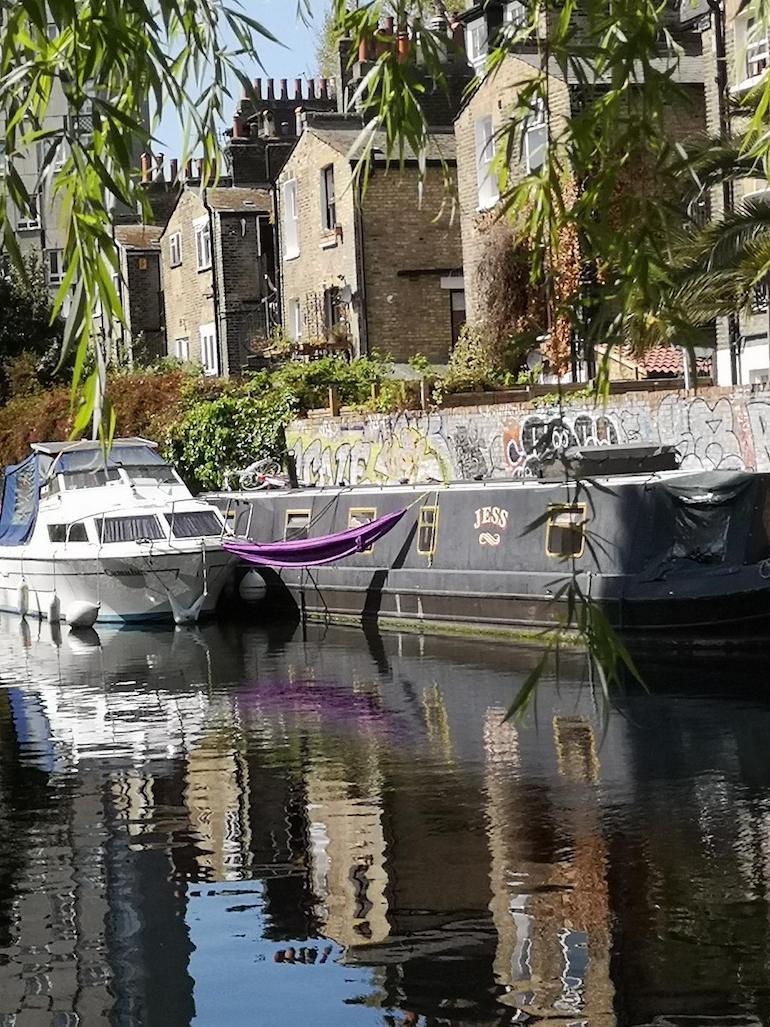 Boats with hammock moored along the Hertford Union Canal, Bow, East London. Photo Credit: © Steve Fallon.
Boats with hammock moored along the Hertford Union Canal, Bow, East London. Photo Credit: © Steve Fallon.
It is the time of lilac, but that’s just a metaphor. I’m chasing poetry – one poem in particular.
`When lilacs last in the dooryard bloom’d,
And the great star early droop’d in the western sky in the night,
I mourned – and yet shall mourn with ever-returning spring.’
The poem was written to President Abraham Lincoln, assassinated 155 years ago this month. And every year, the lilacs remind me of how Walt Whitman showed us how to grieve, how to honour our dead. We learned of a salvation – for the living.
Whatever happened to poetry – the `compressed prose’ that held my skinny little hand when I was a kid and guided me through even more turbulent times as I grew older? Those `words that sound like rain,’ as I (apparently) told my mother as a kindergartener? Did it die a slow and tormented death without so much as a `sincere sympathy’ from us or just quickly jump off the train at some minor station? `Poetic’ has always been right, hasn’t it? `Prosaic’ is usually left behind or even out altogether.
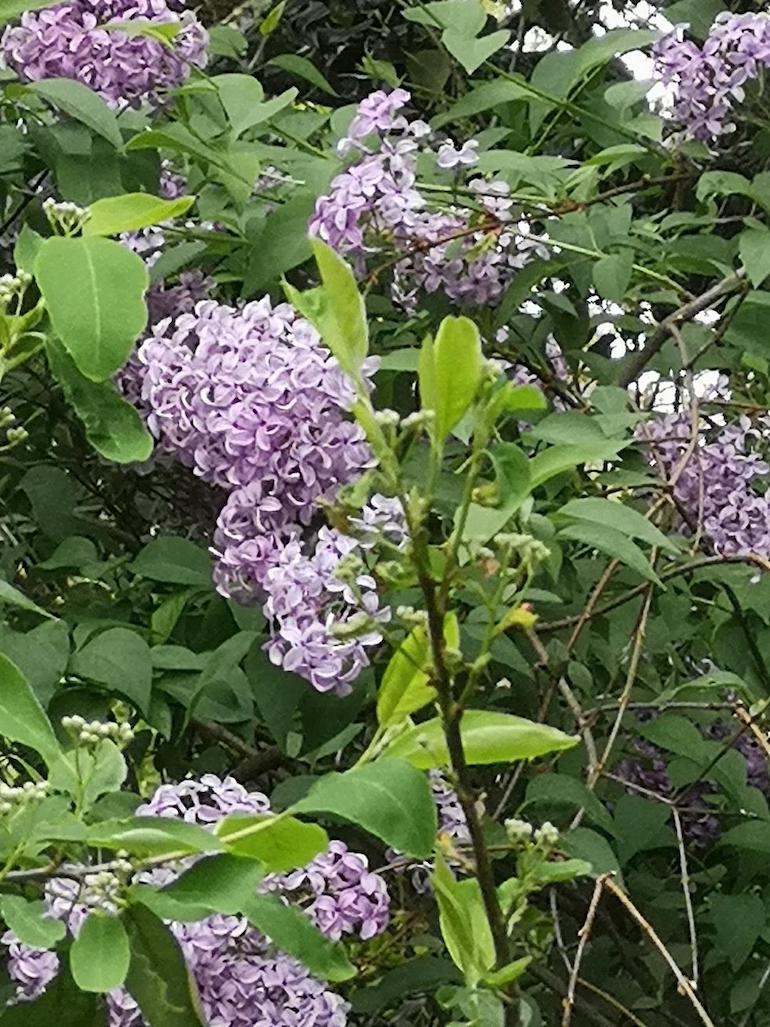 Lilacs in bloom, Bow, East London. Photo Credit: © Steve Fallon.
Lilacs in bloom, Bow, East London. Photo Credit: © Steve Fallon.
Yes, I’ve read about the Ancient Mariner Big Read, with British celebrities all reciting the poem en mass, and I want to say `Bravo!’ But I’ve never been partial to group participation, to flash mobs, to benefit concerts where everyone sings along in unison. I like poetry to be upfront and personal. I want to imagine Walt (or Alfred, Wystan, Emily or Sylvia) right in my face, whispering in my ear, on a first-name basis. Poetry is not meant for social-distancing.
`He prayeth best, who loveth best
All things both great and small;
For the dear God who loveth us,
He made and loveth all.’
That was on an embroidered sampler on our kitchen wall. I learned later at school that it was from `the Mariner’. It just sounded so preachy and sanctimonious.
So now I’m walking through Victoria Park. I’ve become a volunteer monitor during All This, with a high-viz vest, a loudhailer and a walkie-talkie. I get to tell people what they can and cannot do – what’s not to like about that? When I notice a dandelion growing out of a brick wall, Tennyson takes my hand.
`Flower in the crannied wall,
I pluck you out of the crannies;
Hold you here, root and all, in my hand,
Little flower – but if I could understand
What you are, root and all, and all in all,
I should know what God and man is’
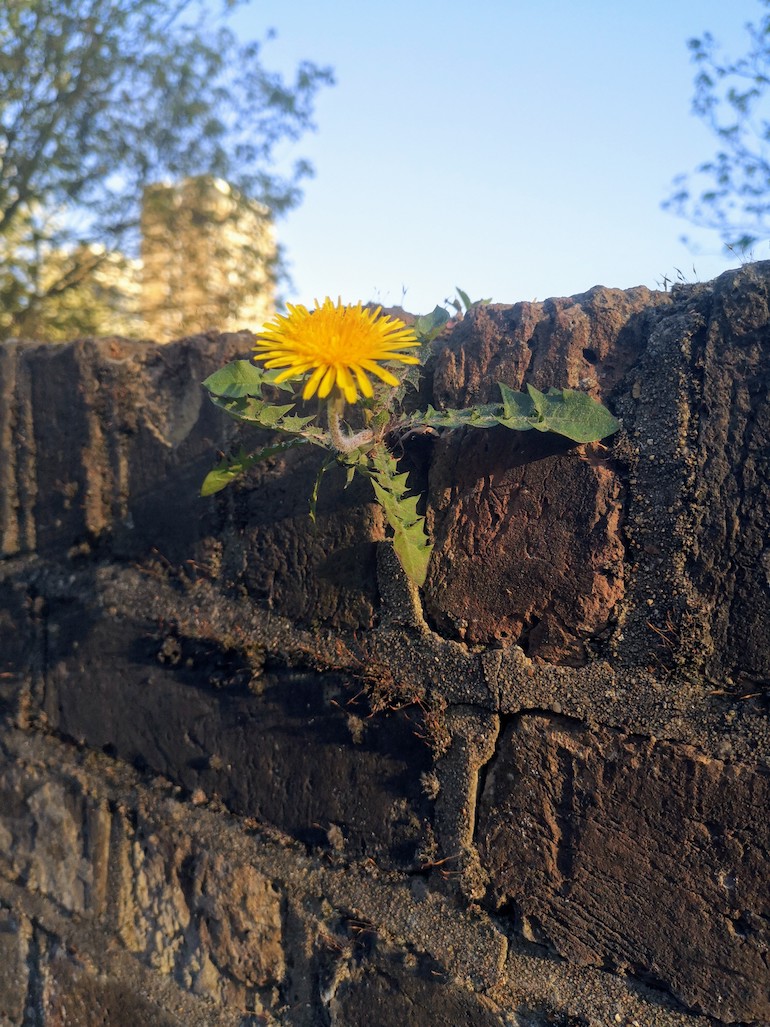 A dandelion growing in a brick wall near in Victoria Park, Bow, East London. Photo Credit: © Steve Fallon.
A dandelion growing in a brick wall near in Victoria Park, Bow, East London. Photo Credit: © Steve Fallon.
I glance up at the clock on the ranger’s house to see how much time I still have left to tell people what – and what not – to do. `Love set you going like a fat gold watch…’ I hope to hear Plath, the girl who died up the road before her time, whisper to me. Instead, it’s Auden…
`Stop all the clocks, cut off the telephone,
Prevent the dog from barking with a juicy bone,
Silence the pianos and with muffled drum
Bring out the coffin, let the mourners come.’
No, just, no. I’ve had enough; there have been far too many funerals already. Then up atop a spreading chestnut tree a robin tweets and trills, and it’s Dickinson, my first true love:
‘“Hope” is the thing with feathers
That perches in the soul,
And sings the tune without the words,
And never stops – at all…’
I’m not stopping if the poetry isn’t and that’s a fact. Instead, I’m gathering twigs for a nest or maybe even something more permanent. I hear the words of that song from a few years back: `Make a little birdhouse in your soul’. And I think to myself: heck, why not? There’s still plenty of room.
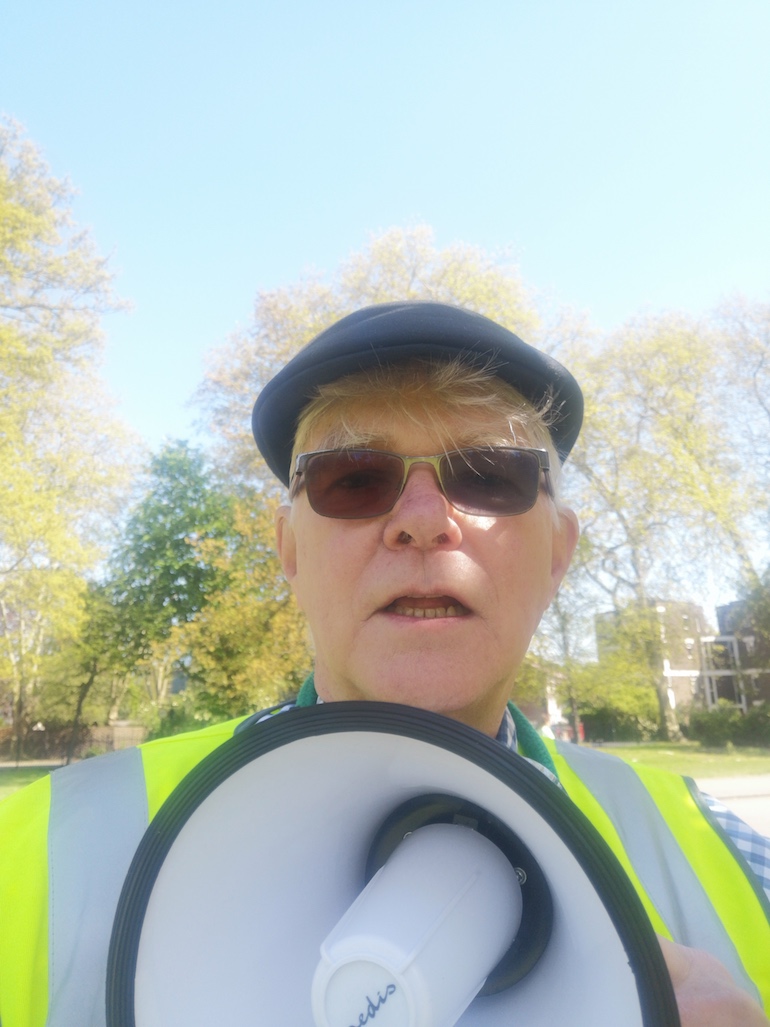 Steve Fallon monitoring in Victoria Park, Bow, East London. Photo Credit: © Steve Fallon.
Steve Fallon monitoring in Victoria Park, Bow, East London. Photo Credit: © Steve Fallon.
This is London from my window. Look out yours from time to time. You’ll be astonished at what you see.
*****
Read all 10 posts from Steve Fallon’s London lockdown series:
- The View From My Window: Our Three Local Heroes
- The View From My Window: The Good News from Victoria Park
- The View From My Window: The Source of Memories & Dreams
- The View From My Window: A Third Eye Opens
- The View from My Window: The Return of Poetry
- The View from My Window: A Flight of Fancy
- The View from My Window: Still in the Still of the Night
- The View From My Roof: Window Currently Not Available
- The View from My Window: My Old Man (Part 2)
- The View from My Front Door: Open Sesame



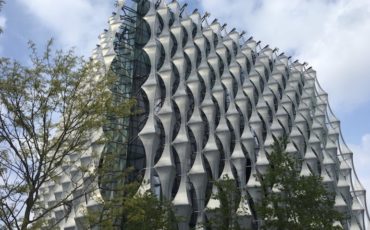
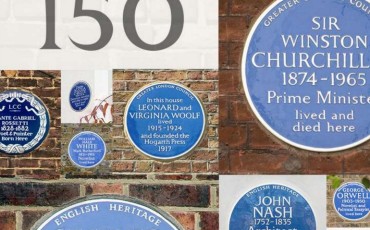

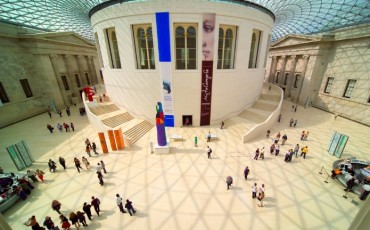
Leave a Reply